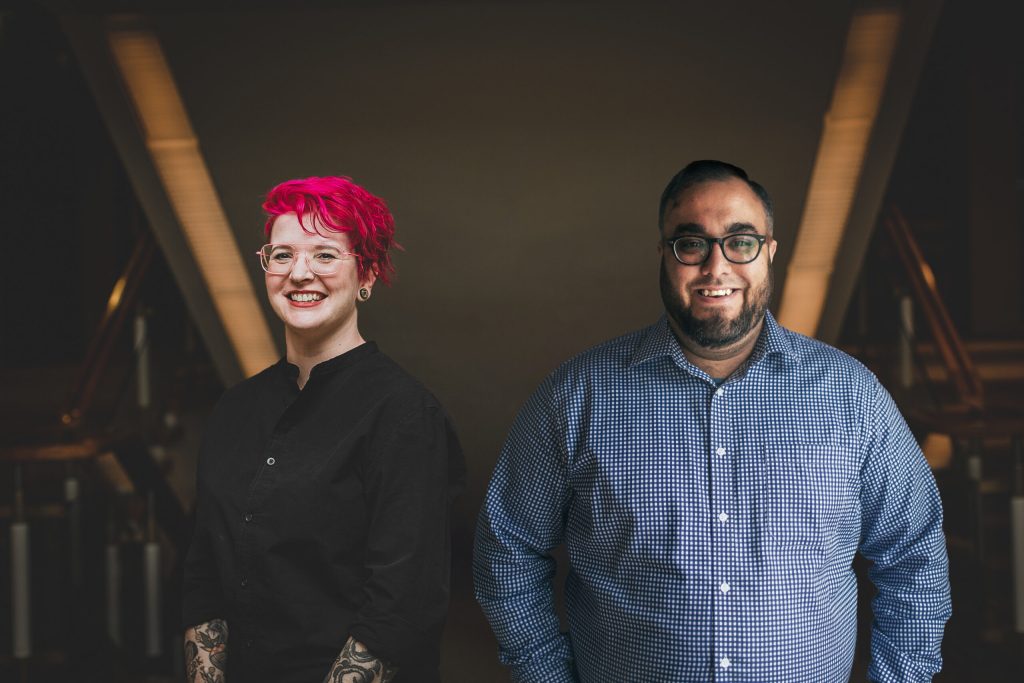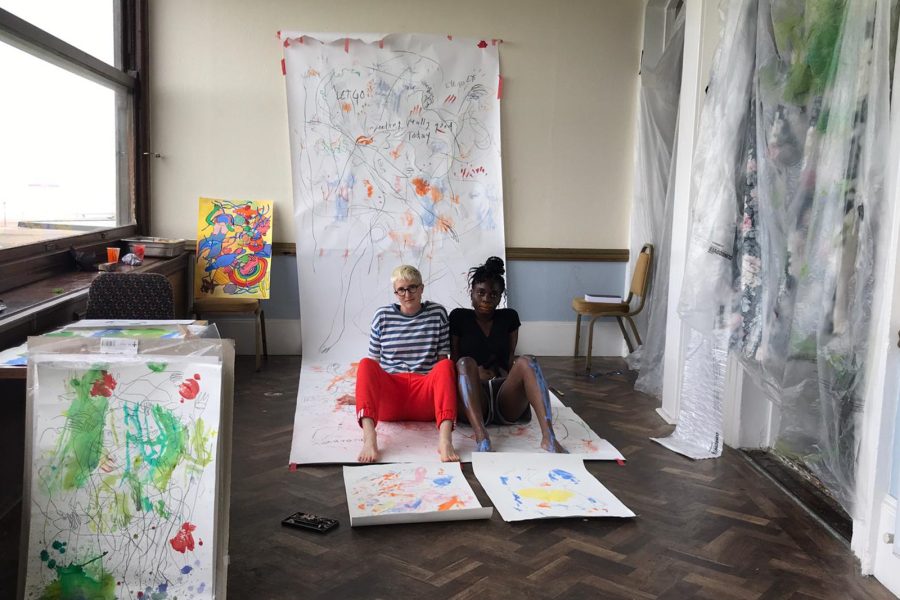Please tell us who you are and what you’ve been working on recently.
CC: I’m Chris Cambell, a non-binary, mixed-race Native American immigrant with ADHD. I routinely edit poetry manuscripts, run weekly poetry workshops online, and have spent the last three years writing hundreds of poems which have just about resulted in my debut collection exploring generational trauma and the way that we are so quick to cast people into the roles of victim/hero/villain before we really understand what brought them to this present moment.
JH: I’m Jem Henderson, a nonbinary queer poet living in Leeds. I have recently been published in Civic Leicester’s Black Lives Matter anthology, Streetcake and Full House Literary Magazine. I have an upcoming book coming out with Nine Pens along with my collaborators JP Seabright and Jonathan Kinsman about our experiences as trans folks. I also recently won a Creative Future award for underrepresented writers. I’m working on my first pamphlet.
What drew you to each other’s practice?
We joined an online poetry collective during Covid – a mix of trans, nonbinary, neurodivergent writers from across the north. Through writing and editing in groups, we noticed a real resonance in the themes and topics of our individual work – exploring trauma, childhood, parenting, place. This is contrasted with a stylistic difference between our work that makes it interesting – performance vs page, experimental vs narrative. This helps with our editing, allowing different, but overlapping, views to shape the finished pieces.
How will you use the 1:1 FUND?
Initially, the fund will pay for a fine dining experience which will sit at the heart of our work. It will then pay for our time to develop, explore, and write a series of poems which examine the evening through our histories of food, poverty, and trauma.
Why did you choose the idea you will be working on?
We were initially interested in exploring the use of tech and AI within myths and origin stories but felt a more personal connection when the idea of a food anchored project came up. Food is a universal way to relate experiences out of the ordinary for people. Cultural dynamics, history, values, and so much more can come through on the plate and, when the history of a dish is explored it only deepens that understanding.
What is the one thing you most hope to gain from undertaking this work?
We hope to challenge conventional conception on what food is and how we interact with it. Food as medicine, food as home, and what roles does food play from a fine dining establishment so far removed from home cooking and the shared experience of many people around the world. In essence we’re exploring the liminal spaces between different socioeconomic classes, the different stages of our own lives, and the differences in each others’ experiences; first noting what we see there and then asking ourselves why it is that way. And it feels fitting that this work is undertaken collaboratively as poetry, and class, can feel insular and egocentric. We believe that poetry, and society, should acknowledge that the betterment of the community must always result in a rising tide that raises all ships, otherwise it isn’t really betterment.

